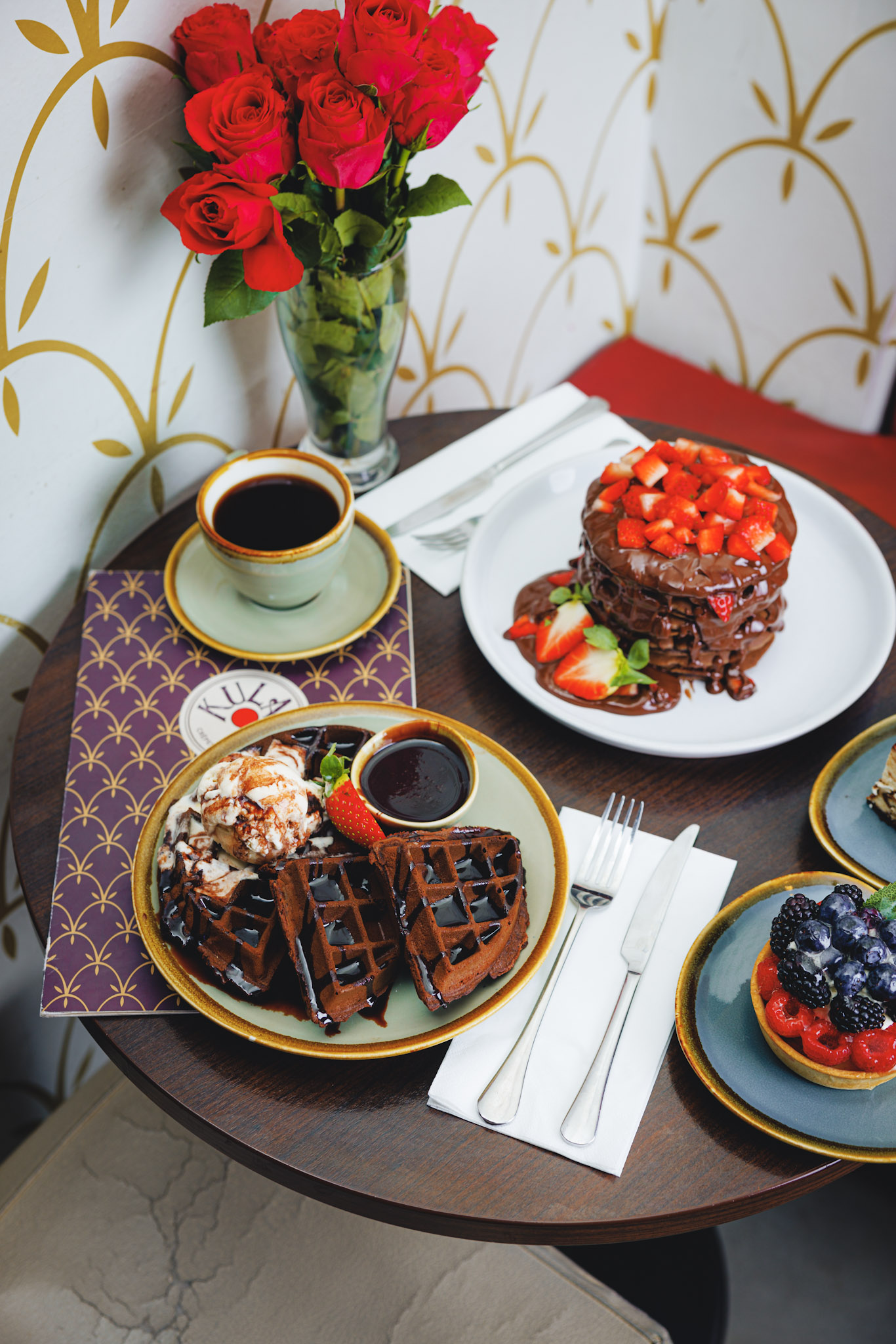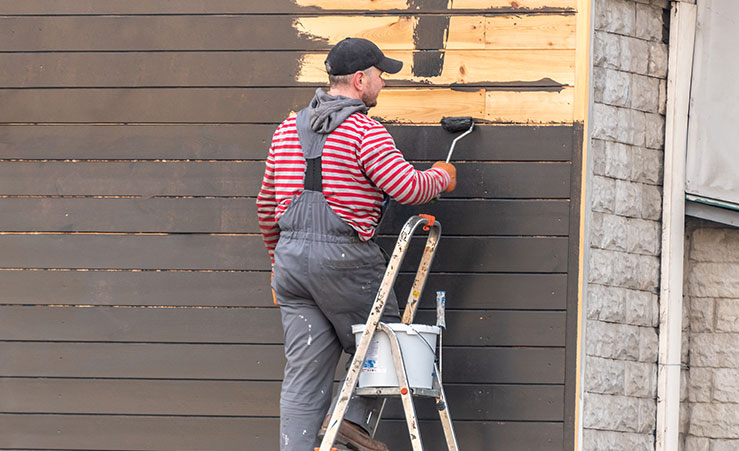Café culture has come a long way since its origins centuries ago, evolving from humble beginnings into a global phenomenon that touches nearly every corner of the world. Whether you’re sipping a cappuccino in Italy, enjoying a pour-over in a Japanese kissaten, or grabbing a quick latte to-go in the bustling streets of London, coffee has become a universal language that transcends borders. In London, cafés are more than just places to grab a drink—they are cultural hubs where people gather, work, socialize, and relax.
Kula Café, located near the iconic London Bridge, is a modern reflection of this deep-rooted café tradition. With a focus on quality, community, and creativity, Kula has earned its place as one of the best places to eat in London. As part of the city’s thriving café scene, Kula Café blends global influences with its own unique flavor, offering a fresh take on the coffee experience while staying true to the traditions that have shaped café culture for generations.
In this blog, we’ll explore the rich history of café culture, how it has evolved globally, and how new restaurants in London like Kula Café are continuing to push the boundaries of what a café can be.
The Birth of Café Culture: From the Ottoman Empire to Europe
Café culture can trace its roots back to the Ottoman Empire, where coffeehouses first emerged in the 16th century in cities like Istanbul. These early coffeehouses, known as “kahvehane,” were places where people would gather to drink coffee, play chess or backgammon, discuss politics, and enjoy each other’s company. The social aspect of these establishments was key—they were centers of intellectual life and conversation, much like modern cafés today.
From the Ottoman Empire, café culture spread to Europe, with the first European coffeehouse opening in Venice in 1647. Soon after, cafés began to spring up in major cities like Paris, London, and Vienna. In these early European cafés, coffee became associated with the Enlightenment, as scholars, writers, and philosophers gathered to discuss new ideas. Cafés became hotbeds of creativity and intellectual exchange.
By the 18th century, café culture had firmly taken root across Europe. In France, the café became an integral part of social and political life, with famous thinkers like Voltaire and Rousseau frequenting Parisian coffeehouses. Meanwhile, in London, coffeehouses were often referred to as “penny universities,” where people could enter, buy a cup of coffee, and engage in lively debate on topics ranging from politics to literature.
Today, café culture continues to thrive across the globe, with each country and city putting its own unique spin on the experience.
The Global Evolution of Café Culture
As coffee consumption spread around the world, so did the café culture that came with it. Each region developed its own distinctive style, blending local traditions with the social, intellectual, and culinary aspects of the café experience.
- Italy: Italy is often credited with perfecting the art of espresso. In the early 20th century, the invention of the espresso machine revolutionized café culture in Italy, where “bars” became the gathering place for a quick, intense shot of espresso. Italian cafés are known for their efficiency—most customers stand at the counter, sip their coffee, and continue on their way. The focus is on quality and simplicity, and the Italian café experience remains one of the most iconic in the world.
- France: In Paris, the café is synonymous with leisure. French cafés, particularly in the 19th and early 20th centuries, were gathering places for artists, writers, and philosophers. Famous cafés like Café de Flore and Les Deux Magots became cultural institutions, frequented by the likes of Hemingway, Sartre, and Picasso. The French café is less about speed and more about savoring the moment—an afternoon spent lingering over a café au lait and people-watching is quintessentially Parisian.
- United States: In the U.S., café culture took on a new dimension in the 20th century with the rise of the coffee shop as a place to study, work, or socialize. The American coffee shop is often associated with the countercultural movements of the 1960s and 1970s, where artists, musicians, and activists gathered to exchange ideas. By the late 20th century, the rise of chains like Starbucks brought café culture to mainstream America, making coffee shops a ubiquitous part of urban life.
- Asia: In countries like Japan and South Korea, café culture has exploded in popularity in recent decades. In Japan, the traditional kissaten (a retro-style coffee shop) coexists with modern cafés that serve high-end pour-overs and specialty coffee. In South Korea, cafés have become trendy social spaces, known for their elaborate decor and Instagram-worthy aesthetics.
Café Culture in London: A Thriving Scene
London has always been at the forefront of café culture, with a rich history of coffeehouses that dates back to the 17th century. Today, London’s café scene is more vibrant than ever, blending traditional British tea culture with global coffee trends.
For many, a café in London is more than just a place to grab a drink—it’s a destination. Whether it’s artisanal roasters serving meticulously crafted brews or cozy neighborhood spots offering a place to unwind, London’s cafés reflect the city’s diversity and creativity.
As one of the new restaurants in London bringing something fresh to the table, Kula Café has quickly become a favorite for locals and visitors alike. Located near the bustling London Bridge, Kula offers a unique blend of global coffee influences and a commitment to quality that makes it stand out in the crowded London café scene.
How Kula Café Fits into the Global Coffee Scene
So how does Kula Café fit into the grand story of global café culture? At Kula, we’ve taken inspiration from the rich history of coffee and café culture around the world while putting our own modern twist on the experience. Here’s what makes Kula Café unique:
- A Commitment to Craftsmanship: Like the great cafés of Italy and France, Kula Café is dedicated to the craft of coffee making. Our baristas are trained in traditional brewing methods, from pulling the perfect shot of espresso to mastering the art of pour-over coffee. We take the time to ensure that every cup is made with precision and care, reflecting the artisanal spirit of the global coffee movement.
- A Fusion of Global Flavors: At Kula, we’ve taken inspiration from café cultures around the world to create a menu that celebrates the diversity of coffee. Whether you prefer a bold Italian-style espresso, a smooth and mellow French press, or a refreshing Japanese-style cold brew, we have something to suit every palate. Our food menu also reflects a global influence, offering a range of dishes that complement our coffee and provide a complete café experience.
- A Space for Community: Like the early European coffeehouses, Kula Café is more than just a place to eat and drink—it’s a space for people to gather, connect, and share ideas. Whether you’re meeting friends for brunch, working remotely, or simply enjoying a quiet moment with a book, Kula offers a welcoming atmosphere that fosters creativity and connection.
- Sustainability and Ethics: In today’s global coffee scene, sustainability is more important than ever. At Kula Café, we are committed to sourcing our coffee beans from ethical and sustainable farms, ensuring that our coffee is not only delicious but also environmentally and socially responsible. This focus on sustainability reflects the growing trend in café culture to prioritize ethical sourcing and support local communities.
- Location, Location, Location: Nestled near London Bridge, Kula Café is perfectly situated for both locals and tourists looking for the best place to eat in London. Our central location makes us a convenient stop for those exploring the city, while our cozy atmosphere and excellent menu make us a destination in our own right.
The Future of Café Culture: Where Kula Café is Headed
As café culture continues to evolve, so does Kula Café. We’re constantly looking for new ways to innovate and improve, whether it’s experimenting with new brewing techniques, introducing seasonal menu items, or creating events that bring the community together. At Kula, we believe that the future of café culture is about more than just coffee—it’s about creating spaces where people can connect, relax, and enjoy a moment of calm in the hustle and bustle of modern life.
For those exploring new restaurants in London and looking for a place that combines global café traditions with a modern twist, Kula Café is the perfect destination. Whether you’re a coffee connoisseur or simply looking for a great meal, we invite you to join us and experience the rich tapestry of café culture at its finest.
Conclusion
Café culture has evolved over the centuries, shaped by the traditions and innovations of different cultures around the world. At Kula Café, we honor this rich history while bringing our own unique flavor to the London café scene. Located near London Bridge, we offer a space where quality coffee, delicious food, and community come together in perfect harmony. Whether you’re searching for the best place to eat in London or exploring new restaurants in London, Kula Café is a destination that reflects the best of global café culture while creating a special experience for every customer.




